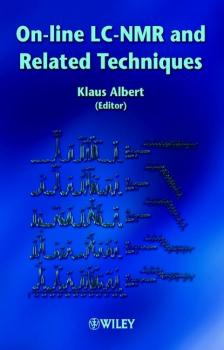Группа авторов
Список книг автора Группа авторовThe Chemistry of Heterocyclic Compounds, Seven-Membered Heterocyclic Compounds Containing Oxygen and Sulfur
The Chemistry of Heterocyclic Compounds, since its inception, has been recognized as a cornerstone of heterocyclic chemistry. Each volume attempts to discuss all aspects – properties, synthesis, reactions, physiological and industrial significance – of a specific ring system. To keep the series up-to-date, supplementary volumes covering the recent literature on each individual ring system have been published. Many ring systems (such as pyridines and oxazoles) are treated in distinct books, each consisting of separate volumes or parts dealing with different individual topics. With all authors are recognized authorities, the Chemistry of Heterocyclic Chemistry is considered worldwide as the indispensable resource for organic, bioorganic, and medicinal chemists.
The Troubleshooting and Maintenance Guide for Gas Chromatographers
This fourth edition of the classic guide for every user of gas chromatographic instrumentation is now updated to include such new topics as fast GC using narrow, short columns, electronic pressure control, and basic aspects of quantitative gas chromatography. The author shares his many years of experience in technical support for gas chromatography users, addressing the most common problems, questions and misconceptions in capillary gas chromatography. He structures and presents the material in a concise and practical manner, suitable even for the most inexperienced user without any detailed knowledge of chemistry or chromatography. For lab technicians in chemistry, analytical, food, medicinal and environmental chemists, pharmaceutists.
Inductively Coupled Plasma Spectrometry and its Applications
The first edition of Inductively Coupled Plasma Spectrometry and its Applications was written as a handbook for users who wanted a better understanding of the theory augmented by a practical insight of how best to approach a range of applications, and to provide a useful starting point for users trying an approach or technique new to them. These objectives have been retained in the second edition but a slight shift in emphasis gives the volume an overall perspective that is more forward looking. Structured into 11 chapters, the current edition is a thorough revision of the original, covering the principles of inductively coupled plasmas, instrumentation, methodology and applications within environmental analysis, earth science, food science and clinical medicine. Each chapter, written by internationally recognised leaders in their specific subject areas, provides enough detail to be useful to both the new and experienced users. Full account is taken of recent developments, such as high resolution instruments, novel detection systems and electrospray techniques. Written for all analytical scientists but particularly those involved in atomic spectroscopy and in environmental, geochemical, clinical or food analysis, this timely and informative book will be an essential reference in their use of inductively coupled plasmas to achieve their own scientific goals.
On-line LC-NMR and Related Techniques
This book gives a comprehensive overview of the basis and the current applications of LC-NMR and related techniques. It deals with the practical aspects of the hardware and software set-up for a successful performance of on-line coupling experiments. It covers the solution of real-word problems from the fields of biomedical, pharmaceutical and environmental studies as well as the analysis of natural products and polymeric compounds. Thus guidelines for an efficient application of the powerful hyphenated technique LC-NMR in combination with LC-MS are presented. Besides LC-NMR, important techniques such as the on-line coupling of gel permeation chromatography and supercritical fluid chromatography, together with 1H NMR spectroscopy, are described in detail. Fascinating further aspects, such as the application of capillary separation techniques either in the single or parallel detection mode, together with the possibilities of direct 13C monitoring of chromatographic events, are also discussed. Key features include: * Up-to-date information on the theoretical and experimental methodology * Coverage of applications in biomedical, pharmaceutical and natural product analysis, as well as environmental polymer and related hyphenated techniques * Information appropriate for researchers in organic, pharmaceutical and medical chemistry Overall, this book is a requirement for all researchers and staff members dealing with structure elucidation problems in separation science.
Nitrification and Denitrification in the Activated Sludge Process
Nitrification and Denitrification in the Activated Sludge Process, the first in a series on the microbiology of wastewater treatment, comprises the critical topics of cost-effective operation, permit compliance, process control, and troubleshooting in wastewater treatment plants. Avoiding the technical jargon, chemical equations, and kinetics that typically accompany such texts, Nitrification and Denitrification in the Activated Sludge Process directly addresses plant operators and technicians, providing necessary information for understanding the microbiology and biological conditions that occur in the treatment process. Of special interest to wastewater treatment plant operators are the bacteria that degrade nitrogenous wastes–the nitrifying bacteria–and the bacteria that degrade carbonaceous wastes–the cBOD-removing bacteria. Both groups of bacteria need to be routinely monitored and operational conditions favorably adjusted to ensure desired nitrification. Each chapter in this groundbreaking study offers a better understanding of the importance of nitrification and denitrification and the bacteria involved in these crucial processes. Chapters include: Organotrophs The Wastewater Nitrogen Cycle Nitrite Ion Accumulation Dissolved Oxygen Denitrifying Bacteria Gaseous End Products Free Molecular Oxygen The Occurrence of Denitrification
Nitrile Oxides, Nitrones and Nitronates in Organic Synthesis
A comprehensive systematization of current novel data in nitrile oxide chemistry, this book authoritatively covers systematic strategies currently used in the preparation and utilization of nitrile oxides, nitrones, and nitronates in organic synthesis. It covers factors governing their stability and includes in-depth information on stable and unstable nitrile oxides. With contributions from leading experts, this is a definitive reference for practicing professionals in organic or medicinal chemistry and an excellent text for students studying organic synthesis.
X-Ray Crystallography of Biomacromolecules
Written by one of the most significant contributors to the progress of protein crystallography, this practical guide contains case studies, a troubleshooting section and pointers on data interpretation. It covers the theory, practice and latest achievements in x-ray crystallography, such that any researcher in structural biology will benefit from this extremely clearly written book. Part A covers the theoretical basis and such experimental techniques as principles of x-ray diffraction, solutions for the phase problem and time-resolved x-ray crystallography. Part B includes case studies for different kinds of x-ray crystal structure determination, such as the MIRAS and MAD techniques, molecular replacement, and the difference Fourier technique.
Materials, Chemicals and Methods for Dental Applications
This book focuses on the materials used for dental applications looking at the fundamental issues and the developments that have taken place the past decade. While it provides a broad overview of dental materials, the chemicals that are used for the preparation and fabrication of dental materials are explained as well. Also, the desired properties of these materials are discussed and the relevance of the chemical, physical, and mechanical properties is elucidated. Methods for the characterization and classification, as well as clinical studies are reviewed here. In particular, materials for dental crowns, implants, toothpaste compositions, mouth rinses, as well as materials for toothbrushes and dental floss are discussed. For example, in toothpaste compositions, several classes of materials an chemcials are incorporated, such as abrasives, detergents, humectants, thickeners, sweeteners, coloring agents, bad breath reduction agents, flavoring agents, tartar control agents, and others. These chemicals, together with their structures, are detailed in the text.
Signal-Switchable Electrochemical Systems
A guide to the biological control over electronic systems that lead the way to wearable electronics and improved drug delivery In recent years, this area of electrochemical systems has developed rapidly and achieved significant progress. Signal-Switchable Electrochemical Systems offers an overview to the wide-variety of switchable electrochemical systems and modified electrodes. The author—a noted researcher and expert on the topic—summarizes research efforts of many groups in a range of universities and countries. The book explores various types of external signals that are able to modify electrode interfaces, for example electrical potential, magnetic field, light, as well as chemical and biochemical inputs. Multifunctional properties of the modified interfaces allow their responses to complex combinations of external signals. These are integrated with unconventional biomolecular computing systems logically processing multiple biochemical signals. This approach allows the biological control over electronic systems. The text explores the applications in different areas, including unconventional computing, biofuel cells and signal-triggered molecular release in electrochemical systems. This important guide: Provides an overview to the biological control over electronic systems and examines the key applications in biomedicine, electrochemical energy conversion and signal-processing Offers an important text written by a highly cited researcher and pioneer in the field Contains a summary of research efforts of an international panel of scholars representing various universities and countries Presents a groundbreaking book that provides an introduction to this interdisciplinary field Written for scientists working with electrochemical systems and applications with signal-responsive materials, Signal-Switchable Electrochemical Systems presents an overview of the multidisciplinary field of adaptable signal-controlled electrochemical systems and processes and highlights their key aspects and future perspectives.
The Aptamer Handbook
In The Aptamer Handbook, leading scientists from academia as well as biotech and pharma companies introduce the revolutionary concept of designing RNA and DNA oligonucleotides with novel functions by in vitro selection. These functions comprise high affinity binding (aptamers), catalytic activity (ribozymes and deoxyribozymes) or combinations of binding and catalytic properties (aptazymes). Basic concepts and technologies describing in detail how these functional oligonucleotides can be identified are presented. Numerous examples demonstrate the versatility of in vitro selected oligonucleotides. Special emphasis has been put on a section that shows the broad applicability of aptamers, e. g. in target validation, for analytics, or as new therapeutics. This first overview in the field is of prime interest for a broad audience of scientists both in academia and in industry who wish to expand their knowledge on the potential of new oligonucleotide functions and their applications.









